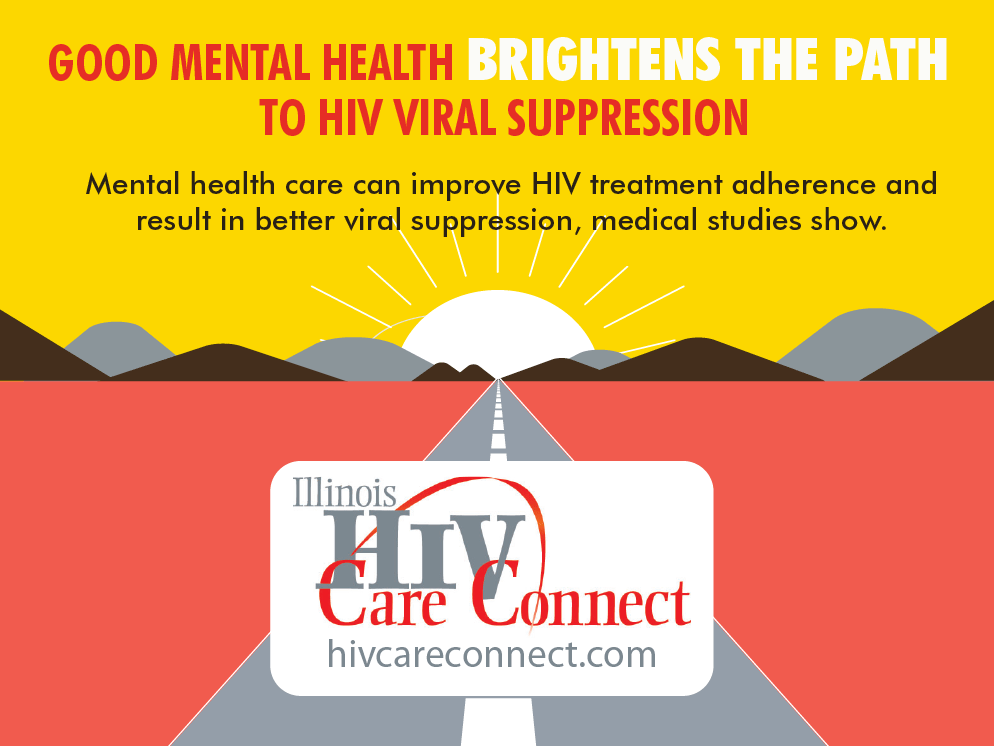A conversation about mental health should be part of your complete medical evaluation when you are diagnosed as HIV positive, as well as before you start anti-HIV medications. These conversations with your health care provider and case manager should continue throughout your life. Be open and honest about any changes in the way you are thinking or feeling about yourself and life in general. Include a discussion of alcohol or substance use in these conversations.
Your health care provider or case manager may refer you to a mental health care provider if counseling or treatment is necessary. Mental health providers (psychologists, therapists, psychiatrists, social workers or nurses) can use various treatments, including medications and/or psychotherapy, also known as “talk therapy.”
Once you begin mental health treatment, it’s important to schedule regular appointments and to go to your appointments once you schedule them. Consider asking a friend or family member to help you make and keep your appointments. When you follow through, your mental health providers can help you feel better, and can improve the chances of successful treatment.
Help in an emergency:
If you are experiencing emotional distress and have suicidal thoughts, call the National Suicide Prevention Lifeline at
1-800-273-TALK (8255).
Help in a non-urgent situation:
If you feel you are experiencing the symptoms of a mental health condition, schedule a time to discuss your feelings with your health care provider or Illinois HIV Care Connect case manager. If you are not yet enrolled in Illinois HIV Care Connect, you may enroll through seven different regional offices.
Learn more about viral suppression – the key to living healthy with HIV



